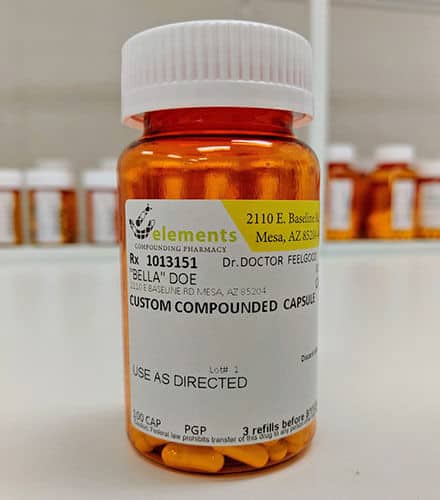fenbendazole capsules: Emerging Studies and Potential Applications
Recognizing the Benefits and Uses of Fenbendazole in Vet Medicine
Fenbendazole has developed itself as a crucial anthelmintic in veterinary medicine. Its ability to target different parasitic infections makes it a valuable device for vets. The drug's system disrupts vital cellular procedures in bloodsuckers, causing effective therapy end results. Its safety and security profile varies between types, requiring mindful consideration in its use (fenbendazole 444). Recognizing these characteristics can clarify fenbendazole's wider ramifications in vet treatment and recurring research study right into its prospective past standard applications
System of Activity of Fenbendazole

Usual Parasitical Infections Dealt With With Fenbendazole
A range of parasitic infections are efficiently treated with fenbendazole, making it a flexible choice in vet medication. This anthelmintic representative is particularly efficient versus nematodes, including roundworms and hookworms, which generally impact pets and cats. It is likewise utilized for the therapy of cestodes, such as tapeworms, supplying a broad range of action against both kinds of intestinal parasites. Additionally, fenbendazole is useful in managing infections triggered by protozoa, especially Giardia, which can lead to stomach distress in animals. Its efficiency reaches dealing with certain lungworms in canines and felines, attending to respiratory system health issues connected to these parasites. On the whole, fenbendazole's ability to target several parasitic species makes it an important device in vet technique, making sure the health and well-being of pets impacted by these usual infections.
Safety and security and Efficacy in Various Pet Types
The safety and efficacy of fenbendazole differ amongst various animal species, emphasizing the importance of species-specific considerations in veterinary medicine. In pooches, fenbendazole is usually well-tolerated and reliable versus a series of intestinal bloodsuckers, consisting of roundworms and hookworms. For felines, however, its usage is much less usual and may need mindful application because of possible unfavorable reactions.
In animals, such as livestock and lamb, fenbendazole demonstrates effectiveness against different endoparasites, adding to improved health and wellness and performance. The pharmacokinetics and prospective side effects can vary significantly in between types, necessitating cautious analysis by vets.
Equines likewise respond favorably to fenbendazole, specifically for dealing with strongyles and ascarids, though dosage and administration courses have to be customized to their special physiology. Understanding these differences is vital for enhancing therapy outcomes and making sure pet welfare across varied varieties.
Administration and Dosage Standards
Correct administration and dosage standards are essential for making the most of the healing effects of fenbendazole while decreasing possible side effects. The dose generally differs depending upon the varieties being dealt with, the particular condition, and the formula of fenbendazole made use of. fenbendazole 444. For canines and pet cats, an usual dose is 50 mg/kg body weight, administered daily for three consecutive days, however vets may readjust this based on private health and wellness evaluations
It is necessary to carry out fenbendazole with food to boost absorption and decrease stomach distress. The medicine is offered in different types, consisting of granules and paste, permitting versatile management alternatives. Keeping an eye on the pet's response during and after treatment is recommended to confirm efficacy and safety. In addition, vet support is vital to figure out the ideal duration of treatment based on the kind of parasitical infection being addressed, ensuring excellent results for the animal's health and wellness.
Future Perspectives and Research on Fenbendazole
Research on fenbendazole continues to progress, concentrating on its possible applications past conventional antiparasitic uses. Current research studies have discovered its efficiency in treating numerous types of cancer, specifically in veterinary oncology. Initial information suggest that fenbendazole may prevent the development of growth cells and enhance the results of other chemotherapeutic agents.
Furthermore, scientists are examining its duty in taking care of food poisonings in animals, highlighting its anti-inflammatory residential or commercial properties. The versatility of fenbendazole for different species questions about its safety accounts and excellent dosing routines in varied populations.
As passion expands, there is a need for thorough clinical tests Read Full Article to develop evidence-based guidelines for these novel applications. Future study might also check out the devices behind fenbendazole's effects, possibly paving the way for cutting-edge restorative strategies in vet medicine. The ongoing expedition of fenbendazole could considerably improve treatment alternatives for various vet problems.

Often Asked Inquiries
Is Fenbendazole Safe for Pregnant Animals?
The safety and security of fenbendazole for expectant pets remains unpredictable. While some research studies suggest very little danger, veterinarians commonly recommend care and often recommend versus its usage while pregnant unless the advantages plainly surpass possible risks.
Can Fenbendazole Be Used in Livestock?
Fenbendazole is generally used in website here livestock to deal with numerous parasitical infections. 222 mg. Its effectiveness against gastrointestinal worms makes it a valuable anthelmintic, adding to boosted wellness and performance in pets elevated for food and fiber
What Are the Side Impacts of Fenbendazole?

The side impacts of fenbendazole may consist of stomach disturbances, sleepiness, and allergic reactions. In unusual cases, extra severe responses might take place, demanding careful tracking and consultation with a veterinarian throughout treatment.
Exactly How Does Fenbendazole Compare to Various Other Dewormers?
Fenbendazole provides broad-spectrum efficiency against various bloodsuckers, frequently contrasting favorably to various other dewormers. Its distinct system targets various life phases, making it efficient, while usually presenting a beneficial safety profile contrasted to options offered on the market.
Can Fenbendazole Be Made Use Of for Dealing With Cancer in Pets?
The possibility of fenbendazole in treating cancer in pets has amassed rate of interest. Preliminary researches suggest it may hinder cancer cells have a peek here cell growth, however further research study is essential to verify its efficiency and security in veterinary oncology.